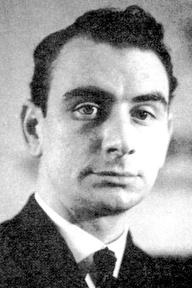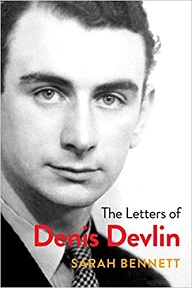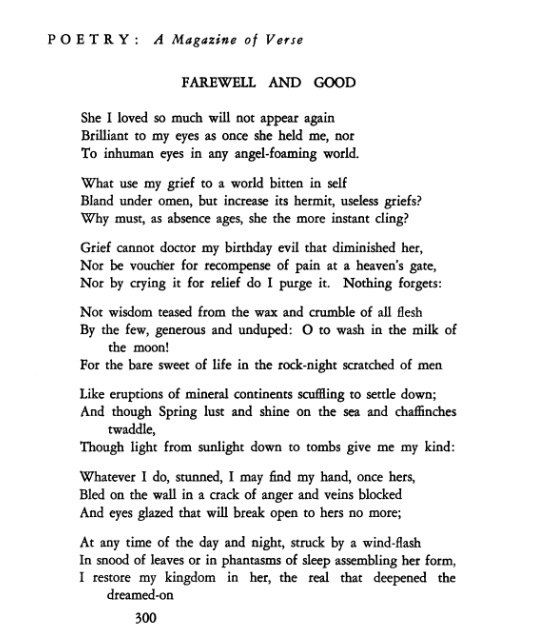Life
| 1908-59; b. 15 April, Greenock, Scotland, returning with family in 1918; ed. at Belvedere College; spent a year at All Hallows seminary, Dublin; became a member of Vincent de Paul; studied modern languages at UCD, 1927-29; Munich, 1930-31; and Sorbonne, 1931-33; completed an MA thesis on Montaigne; spent a period in research and lecturing at UCD before joining the Irish Diplomatic [Foreign] Service, 1935; posted to New York, 1939; posted to Washington (first sec.), 1940-47; |
| met St. John Perse, and the Americans Allan Tate and Robert Penn Warren; contrib. poems and translations from St. John Perse and René Char to Sewanee Review and Botteghe Oscure, published ‘Lough Derg’ in The Southern Review (1942); m. Marie Caren Radon, 1946; Irish High Commissioner, London 1947; Irish Plenipotentiary, Italy 1950; accredited to Turkey, 1951; |
| his long poem “Lough Derg” was severely criticised by Randell Jarrell in Poetry and the Age (1953); accredited ambassador for Ireland in Turkey, 1951; d. 21 Aug. 1959, of leukemia, Dublin; his Complete Poems were published as a special issue of the University Review (Summer 1964); the Devlin Papers are held in the National Library of Ireland [see infra]; the copyright of his literary estate rests with Countess Maria Caren di Gropello. DIW DIB DIL FDA HAM OCIL |
 |
 |
| Denis Devlin (1908-59) | |
[ top ]
Works| Poetry collections |
|
| Contributions |
|
| Sel. & Collected |
|
| Letters |
|
Note: the Devlin papers are held at the National Library of Ireland [NLI] in two manuscript groups, (MSS. 33,747-33,797 and 33,798-33,810), donated respectively by his sisters Mrs Moya Lindsay and Mrs Raphael McMullan. The catalogue in pdf. includes an index of first lines (pp.44-53; end).- online [140MB]. |
Complete Poems of Denis Devlin [Special Issue of University Review] (Summer 1963) |
|
| JSTOR links | |
| Introduction (pp.v-viii) | |
| Published Poems | |
|
online online online online online |
| Lough Derg and Other Poems (1946) | |
|
online online online online online online online online online online online online online online online online online online online online online online online online online online online online online online online online online online online online online online online online online online online online online |
| Intercessions (1937) | |
|
online online online online online online online |
| First Poems (1930) | |
|
online online online |
| Poems Published Posthumously (1963) | |
|
online online online online |
| Unpublished Poems | |
|
online online online online online online online |
[ top ]
Criticism
|
| See also ... |
|
[ top ]
Commentary
Samuel Beckett (“Recent Irish Poetry”, Bookman, 1934), singles out Devlin with Brian Coffey as the most interesting of the youngest generation, but refrains from quoting from their joint collection of 1930. He adds: ‘it is no disparagement of Mr Devlin to observe that this [quoting ‘Est Prodest’ from Intercessions, 1937) is still too much by the grace of Eluard. What matters is that it does not proceed from the Gossoons Wunderhorn of that Irish Romantic Armin-Brentano combination, Sir Samuel Ferguson and Standish O’Grady, and that it admits - stupendous innovation - the existence of the author.’ (Quoted with comments in The Field Day Anthology of Irish Writing, gen. ed., Seamus Deane, 1991, Vol. 3.) And note: Note: Beckett calls Devlin a ‘gigerl’, &c.
Samuel Beckett, ‘Denis Devlin’, in transition (q.d.): ‘To rail at Mr Devlin’s form as overimaged (the obvious polite cavil) is to cavil at the probity with which the creative mind has carried itself out, a probity in this case depending on a minimum of rational inference, and indeed to suggest that the creative act should burke its own conditions for the sake of clarity. That time is perhaps not altogether too green for the vile suggestion that art has nothing to do with clarity, does not dabble in the clear and does not make clear, any more than the light of day (or night) makes the subsolar, -lunar, and -stellar excrement. Art is the sun, moon and stars of the mind, the whole mind … Mr Denis Devlin is mind aware of its luminaries.’ (Rep. in The Lace Curtain, III, Summer 1970, pp.43-44; quoted in Daniel Murphy, Imagination and Religion in Anglo-Irish Literature 1930-1980, Dublin: IAP 1987, p.79.)
See also John Harrington, The Irish Beckett (Syracuse UP 1991) [Chap.:] ‘Early Criticism in Context’: ‘In an unsigned review the Times Literary Supplement had dismissed Intercessions as “more intoxicated than intelligible” and had concluded: “There are lines here and here which rise above the gulf of turgid incoherence, but not enough of them to form a bridge between the poet and the reasder. [786]. In opening his review, Beckett observed with a distinctly Yeatsian hauteur that “poets have always played push-pin in the country of Bentham.” [Disjecta, 91.] In closing his review, he praised a particular poem that he noted had been “adduced by the Times Lit. Sup., in a tone of exhausted disapproval, as indicating mental confusion and technical ineptitude” [Disjecta, “Denis Devlin”, 94]. This particular antagonism survived at least ten years, for in Molloy the narrator to the same effect praised TLS for insular characteristics: “I wrapped myself in swathes of newspaper, and did not shed them until the earth awaoke, for good, in April. The Times Literary Supplement was admirably adapted to this purpose, of a never failing toughness and impermeability. Even farts made no impression on it.” [Three Novels, 30.] Between these gibes at the English, “Denis Devlin” offered a characteristic counterassessment on art, one that on this occasion was articulate in castigation of all forms of literary positivism: “The time is peraps not altogether too green for the vile suggestion that art has nothing to do with clarity, does not dabble in the clear and does not make clear, any more than the light of day (or night) makes the sublunar, -lunar and -stellar excrement.” [94.].’ (Harrington, p.41.)
[ top ]
John Montague, ‘The Impact of International Modern Poetry on Irish Writing’, in Seán Lucy, ed., Irish Poets in English (Cork: Mercier 1972), pp.144-58. Montague starts with an epigraph from St-John Perse, translated by Devlin (‘... portes ouvertes sur l’exil, doors open on exile’), and offers lengthy comments on to him, commencing: ‘So Denis Devlin, the most resolutely cosmopolitan of recent Irish poets, and the one whose name will be most invoked in this essay ...’ - adducing the conclusion that ‘[a]n Irishman may travel, but the memory of his maternal landscape persists.’ (p.144). Further remarks and exended quotations incl. the following: ‘The great interest of Denis Devlin is that he is the first poet [148] of Irish Catholic background to take the world as his province. The initial influence on his work was French; there was that extraordinary project he formed, with Niall Montgomery, of translating modern French poetry into Gaelic. [...]’ Montague quotes lines: ‘The tendrils of fountain water thread that silk music / From the hollow of scented shutters [...] With barely escaping voice / With arched fastidious wrists to be so gentle’, and remarks: ‘Samuel Beckett has compared this passage to a late poem by Holderlin, which was heady praise for a young poet. And Devlin had studied German romanticism, from Goethe through Novalis to Holderlin, as well as a good deal of Italian and Spanish poetry.’ Also quotes and comments on ‘[t]he plangent opening of “Meditation at Avila”, and remarks; ‘What makes the poems in his second volume more accessible is their increasing case both in line and language, something [149] he certainly learnt from his American contemporaries. During his period as first secretary in Washington he made friends with Allen Tate and Robert Penn Warren, who subsequently edited the American edition of his Selected Poems, and he could hardly help but be familiar with the great generation that preceded them, poets like Stevens, Eliot, Hart Crane (whose dense style resembles Devlin’s), and Cummings. The result is this new kind of colloquial vigour [quoting “No, we can’t get a licence for liquor, ...; &c.,]”’ Montague concludes: ‘It is when this case is matched by an important theme, often a religious one, that Denis Devlin nears greatness. We may not have produced a Catholic novelist in Ireland, but in certain poems of Austin Clarke and Denis Devlin our racial drama of conscience smoulders with intellectual passion.’ (pp.149-50.) Further: ‘And this is where the example of Denis Devlin seems to me important. He was not completely successful in his efforts (because he did not publish enough his language lacks ease, and there is a vein of sentimentality in poems like The Heavenly Foreigner) but he wanted to write a poetry that would be as good as the best anywhere in the world.’ (Ibid., p.157; for full text, see RICORSO Library, “Critical Classics”, infra.)
Robert Welch, Changing States: Transformations in Modern Irish Writing (London: Routledge 1993): ‘Devlin told Coffey, “I would like a discourse from which the middle terms have been dropped”, a comment which underlines qualities in his poetry that have baffled and perturbed critics, among them the American poet Randell Jarrell, who attacked “Lough Derg” for its concentration upon the instant, its failure to link images together in a cogently presented narrative line, [as well as] and its allusiveness - [all] criticisms which effectively describe the way Devlin’s poetic concentration operates. There are gaps between self and world, Christ and man, and between separate moments of time, each bristling with its own foreignness and strangeness. Poetry is the working out of a relation between these different elements’ [Changing States, q.pp.].
Gerald Dawe, reviewing Alex Davis, A Broken Line: Denis Devlin and Irish Poetic Modernism (2000), with Donal Moriarty, The Art of Brian Coffey (2000), in The Irish Times (26 Aug. 2000), quotes Davis: ‘[Devlin’s poetry] takes its cue more from verbal pyrotechnics of Hart Crane and the Surrealism eroticism of Paul Éluard than the poetry of the Irish literary revival’. Selected Poems published by his friends Allen Tate and Robert Penn Warren shortly after his death in Dublin aetat. 51. Dawe further quotes, ‘From an American perspective, Devlin seems un-Irish (not anti-) and certainly not English; his is rather a European in the sense that Valéry and, in the next generation in France, Saint-John Perse are European in outlook’.
J. C. C. Mays, ‘[...] Poems by Denis Devlin’, in Brian Coffey, ed., Advent VI [“Denis Devlin Special Issue”] (1976), writes that Memoirs of a Turcoman Diplomat, ‘the last poem published by Devlin [...], begins as a series of separate brief epiphanies a selection of which makes up eight sections; prepared in extensive drafts and revisions; an ageing diplomat meditates on the discrepancy between the country he represents as it is in his mind and in sordid reality, exploiting parallels between Ireland and Turkey; shows deeping of tolerance measured against Lough Derg (1946), possibly compromising ironic stance of Turkish diplomatic.’ (q.p.)
Terence Dewsnap, Island of Daemons: The Lough Derg Pilgrimage and the Poets Patrick Kavanagh, Denis Devlin, and Seamus Heaney (Delaware UP; NJ: AUP 2010) - see COPAC note: ‘The question is why do three mid-career Irish poets choose to write ambitious and problematic poems about the Lough Derg experience? The answer is found in the competing proprietary claims of what began as an early medieval imagining of Purgatory and becomes in the twentieth century a template for artistic and spiritual conversion.’ (Go online; accessed 08.02.2012.)
[ top ]
Quotations
|
[ top ]
|
[ top ]
References
Seamus Deane, gen. ed., The Field Day Anthology of Irish Writing (Derry: Field Day 1991), Vol. 3, selects “Lough Derg” “Encounter” from Lough Derg and Other Poems; also “The Colours of Love”, “The Tomb of Michael Collins” from Later Poems. BIOG & COMM, 169 [as supra]. Note, FDA ed. refers to Beckett’s review of Intercessions, included in Disjecta (pp.91-94), which praises ‘Est Prodest’ and and compares the review with Thomas MacGreevy’s in Ireland Today II (Oct. 1937), pp.81-82, which sets Devlin’s volume against Beckett’s Echo’s Bones. (For Beckett’s remarks, see Quotations.)
Robert Hogan, ed., Dictionary of Irish Literature (Dublin: Gill & Macmillan 1979), entry on Montague by Nora F. Lindstrom.
John Montague, ed., Faber Book of Irish Verse (Londo: Faber & Faber 1974), incls. “Encounter”; “Lough Derg”; “Ascension”; “Ank’hor Vat”; “Venus of the Salty Shell”.
Maurice Harmon, ed., Irish Poetry After Yeats: Seven Poets (Wolfhound Press 1979), includes selection.
Patrick Crotty, ed., Modern Irish Poetry: An Anthology (Belfast: Blackstaff Press 1995), selects “Ank’hor Vat” [95]; “Little Elegy” [96]; from Memoirs of a Turcoman Diplomat: “Oteli Asia Palas, Inc.” [98]; “Renewal by her Element” [99].
[ top ]
Notes
Murderous angels: The phrase ‘murderous angels in the head’, in Devlin’s poem set in “Béal na mBláth” (‘Tomb of Michael Collins’), provides the title of a book by Conor Cruise O’Brien.
Special Number: Collected Poems (1964) was first issued as a special number of University Review, Dublin (1963), and afterwards in book-form, copyright of Countess Maria Caren di Gropello; see also a poem in memory of Devlin by Coffey included in John Montague, ed., Faber Book of Irish Verse (1974), p.293.
Randall Jarrell identified a ‘rather poor and arbitrary ear’ as the defining characteristic of Denis Devlin’s work. (See Patrick Crotty, review of W. J. McCormack, ed., Ferocious Humanism: An Anthology of Irish Poetry, Dent 2000, in Times Literary Supplement, 2 June 2000, pp.4-5.)
Kith & Kin?: Denyse Devlin, aka Denyse Woods [q.v.], described as daughter of a diplomat, is author of novels The Catalpa Tree, and Hopscotch (Penguin 2006).
[ top ]
